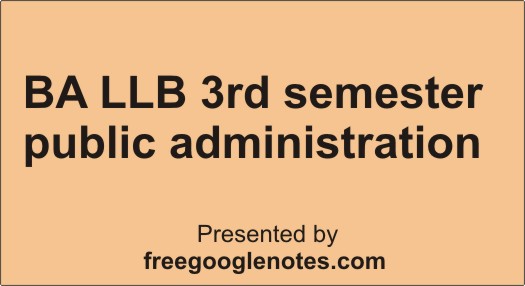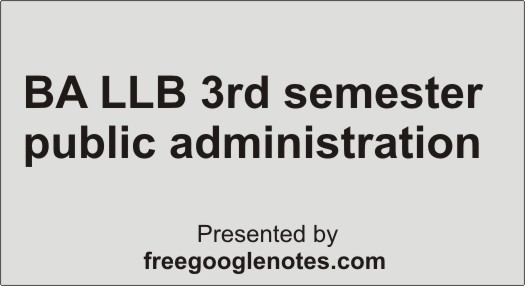Table of Contents
Ba llb legal method notes: What is Untouchability? Discuss its disability and causes.
Q. What is Untouchability? Discuss its disability and causes.
legal methods notes pdf download
Ans. Prior to the 1931 Census, the scheduled castes were classed as ‘depressed’. There was a lot of criticism against the use of this word and as it meant the same as ‘outcaste’ the word ‘exterior’ was substituted in 1931.
In 1936, the name ‘exterior’ was changed to Scheduled Castes by an Order-in-Council under the Government of India Act of 1935.
Mahatma Gandhi gave to the Scheduled Castes the name Harijans. He coined this word at the suggestion of a Harijans who quoted T. S. Jarasimha Mehta, the Gujarati poet, to say the “for the helpless, God is the Protector”.
In 1935 the Government of India prepared a list of castes for providing special facilities to the untouchable castes. This list included castes whose total population numbered 5.35 crore people. These castes were called scheduled castes by virtue of their inclusion in the list. These were called untouchables. The problem of untouchability is a serious social problem in Indian society.
Definition of Untouchability
It is extremely difficult to define untouchability. Actually, untouchability implies those disabilities which were imposed upon the Harijan castes by the superior castes. In Untouchability Offenses Act 1955, the word untouchability was given this connotation. In this way according to the above law: “It is an offense to prevent any person on the ground of untouchability, (a) from entering any place of public worship which is open to other person professing the same religion, (b) from worshipping or offering prayers or performing any religious service in any place of public worship or bathing in or using the waters of any sacred tank, well, spring or water-course in the same manner as is permissible to other persons professing, the same religion, and (c) from access to or use of a shop, hotel, public restaurant or place of public entertainment or public conveyance or hospital dispensary or educational institution and charitable trust.” Dr. Bhim Rao Ambedkar and Mahatma Gandhi have also defined untouchability on the basis of some disabilities. In this way, disabilities are a sign of untouchability. Dr. D. N. Majumdar has written, “The untouchable castes are those who suffer from various social-political disabilities many of which are traditionally prescribed and socially enforced by high castes”. In brief, Untouchable are those castes which are subject to some disabilities in every walk of life-social, religious, economic, and political. This definition will be further clarified by a detailed description of these disabilities.
Disabilities of Harijans
Untouchables suffer from the following disabilities –
A. Religious Disabilities. In India, the Harijans were subjected to various religious disabilities in society. They were prevented from entering temples, monasteries, and cremation grounds, and were not permitted to make use of them because it was believed that these places would become impure by their touching them. In this way, the Harijan could not worship in the temple. Their presence was considered sufficient to defile the gods, let alone their worshippers.
But the disabilities imposed upon the Harijans in India are pre-eminently social and economic, the removal of which will, in itself, eliminate their backward condition in respect of political status. Actually, the religious disabilities of the Harijans are also their social disabilities.
B. Social Disabilities. In the social sphere, the disabilities of the Harijans are the following –
(1) Prevention from the use of public roads. Hudson has written that the presence of a particular untouchable caste in Tamil Nadu was considered so derogatory that their members were prevented from using the public roads in the daytime and consequently they were obliged to do their work at night. Their shadow was enough to defile the members of the higher castes. Thus, upon seeing the members of the higher castes the Harijans would adopt a prostrate posture upon the ground so that then shadow may not fall on the members of higher castes.
(2) Prevention from the use of the public well. In almost all Indian villages the Harijans have forbidden the use of the well for drawing water, and this convention was enforced with a greater or lesser degree of strictness. In Bengal, they were permitted to come near the well but not allowed to draw water from it. Only a higher caste Hindu could draw water for them. In some other states, the untouchables were not permitted even to approach the well.
(3) Prevention from entering schools. The Harijan children did not have the right to enter the schools because if they sit down to study beside other children it would have defiled the children of the higher castes. On the other hand, there were no separate schools for the Harijans. Actually, education was not even considered necessary for them. If they insisted upon being taught then they had to sit out in the open sun in order to study. In many religious texts, education has been forbidden for the Shudras.
(4) Other social restrictions. Besides the foregoing disabilities, the Harijans were subjected to many other social restrictions. In marriage, the Harijan bride and bridegroom were not allowed to sit in the palanquin. Among the Chamars the bridegroom was harassed by the Rajputs if he sat on a horse. The Harijans were not allowed the freedom of adopting a respectable outfit. The hairdresser would not tend their hair. The washerman would not wash their clothes and the shopkeeper would not supply them with food.
C. Economic Disabilities. The disabilities of the Harijans were not restricted only to the social sphere but these were extended into the economic sphere too. Due to their social disabilities, they could not retain any interest in or enthusiasm for their occupation. They did not have the permission to engage in the professions of the higher castes. And even as it is, their conventional occupations were dirty and soiled and their means for earning then – bread and butter were limited. Even now there is next to no education among the Harijans. They are bundled with debt while poverty and famine conditions prevail among them. They live in dirty slums in which new diseases are always making their life miserable. There is no medical provision for them since the high caste doctor becomes defiled merely by touching them.
Caste and Untouchability
There are many racial, religious, and social causes of untouchability in India. The major cause is the caste system. The untouchable castes are the most inferior among the numerous castes in the Hindu community. To the caste system is attached the sense of high and low, which is the fundamental cause of untouchability. Another cause of untouchability is the prevalence of many taboos in the caste system. Just as there are taboos for the higher castes intermarrying, eating, and mixing with the lower caste, in the same way, taboos, were created, for preventing touching and even seeing of the lower castes which did the dirty work. As a consequence of the feeling of superiority and inferiority, these castes came to be called the untouchables. In this way, untouchability in India is based upon the caste system. Untouchability is the result of the sense of superiority and inferiority and social taboos. In caste and class of India, Ghurye has written that in Poona, during the reign of the Marathas the untouchable castes Mahar and Mang were not allowed to enter the gates of towns between three o’clock in the afternoon and nine in the morning because the shadows are at their longest at this time and there is the fear of the higher Brahmins being defiled. In Maharastra the Mahar caste could spit only in small containers tied around their neck because they were to spit upon the road it might defile some superior Hindu.
Para 16. (1) There shall be equality of opportunity for all citizens in matters relating to employment or appointment to any office under the state.
(2) No citizen shall, on grounds only of religion, race, caste, sex, descent, place of birth, residence, or any of them, be ineligible for or discriminated against in respect of any employment or office under the state.
(3) Nothing in this article shall prevent Parliament from making any law prescribing, in regard to a class or classes of employment or appointment to any office under any state specified in the First Schedule or any local or other authority within its territory, any requirement as to residence within that state prior to such employment or appointment.
Para 17. “Untouchability” is abolished and its practice in any form forbidden. The enforcement of any disability arising out of ‘Untouchability’ shall be an offense punishable in accordance with the law.
The following arrangement has been made for the eradication of untouchability in the Directive Principles of state policy in the Indian Constitution –
Chapter 6. The government will develop the economic and educational interests of the weakest classes, especially Scheduled Castes and scheduled backward castes, with special precautions and will protect them from social injustice and all kinds of exploitation.
Article 46. The castes shall promote wıth special care the educational and economic interests of the weaker sections of the people and in particular, of the scheduled castes and the scheduled tribes and shall protect them, from social injustice and all forms of exploitation.
Article 164. provides that in the State of Bihar, Madhya Pradesh, and Orissa, there shall be a Minister in charge of tribal welfare who may, in addition, be in charge of the welfare of the scheduled castes and backward classes or any other work.”
Article 330. (1) Seats shall be reserved in the house of the people for –
(a) The Scheduled Castes;
(b) The Scheduled Tribes except for the Scheduled Tribes in the tribal areas of Assam; and
(c) The Scheduled Tribes in the autonomous districts of Assam.
(2) The number of seats reserved in any state for the scheduled castes or the scheduled tribes under clause (1) shall bear, of as nearly as may be the same proportion the total number of seats allotted to that state in the house of the people as the population of the scheduled castes in the state of the scheduled tribes in the state or part of the age may be in respect of which seats are so reserved, bears to the total the population of the state.
Article 322. (1) Seats shall be reserved for these scheduled castes and the scheduled tribes, except the scheduled tribes in the tribal areas of Assam in the Legislative Assembly of every state specified in the part A or part B of the First Scheduled.
(2) Seats shall be reserved also for the autonomous districts in the Legislative Assembly of Assam.
Article 335. The claims of the members of the scheduled castes and the scheduled tribes shall be taken into consideration, consistently with the maintenance of efficiency of administration, in the making of appointments to services and posts in connection with the affairs of the
union or of a state.
Article 338. (1) There shall be a special officer for the scheduled castes and scheduled tribes to be appointed by the President.
(2) It shall be the duty of the special officer to investigate all matters relating to the safeguards provided for the scheduled castes and scheduled tribes under this constitution and report to the President upon the working of those safeguards at such intervals as the President may direct and the President shall cause all such reports to be laid before each House of Parliament.
Article 340. (1) The President may be ordered to appoint a Commission consisting of such persons as he thinks fit to investigate the conditions of socially and educationally backward classes within the territory of India and the difficulties under which they labor and to make recommendations as to the steps that should be taken by the Union or any State to remove such difficulties and to improve their, condition and as to the grants that should be made for the purpose by the union or any state and the conditions subject to which such grants should be made, and the order appointing such Commission shall define the procedure to be followed by the Commission. According to the 17th paragraph of the Indian Constitution, untouchability is a punishable crime. In 1955, the Indian Government passed for Untouchability Offences Act in which any person forcing the disability of untouchability can be sentenced to six months imprisonment or a fine for Rs. 500/- or both for his first crime. For every subsequent crime, the sentence will include both a term in jail a well as fine. If considered necessary the punishment can also be increased. According to this act, the following activities were declared criminal-preventing entrance into public temples or places of worship, preventing the drawings of water from sacred lakes, wells, falls, or springs, preventing people from the use of Dharamshala, inn, hotel, riverbank, cremation ground, water tank, water tap, educational institution, public hospital, public restaurant, preventing the Harijans from pursuing any general occupation, doing a barber’s job or any general activities and harassing them or discriminating them on the basis of untouchability at such times as religious festivals, residential house, business or profession.
Besides enacting laws against untouchability the government of India also instigated propaganda against untouchability throughout the Country. All the states observe ‘Harijan weeks’ and ‘Harijan Day’ in States and districts, advisory committees have been made which increase contact between untouchables and superior Hindus. Books, handbills, posters, and pamphlets are printed in Hindi, English, and regional languages and distributed means of propaganda against untouchability.
Economic Improvement
A. Realising the financial problems of the Harijans the Government have taken the following step in the direction of their financial improvement –
(i) Laws for escaping debt. In nearly all the States of India, laws have been enacted for defending the untouchables from the Mahajans.
(ii) Laws for defense against the tradition of slavery. In Bihar and Orissa, the Harijans had to become slaves of the Mahajan in the event of their inability to repay debt. Now, this tradition has come to an end due to laws.
(iii) Distribution of land to Harijans. In Andhra, Bihar, Orissa, Bombay, Madras, Uttar Pradesh, and Saurashtra, the government has turned useless and unoccupied land into cultivable land and has distributed it among the Harijans.
(iv) Laws making the farmer the owner of the land. The Government of Andhra, Bihar, Orissa, Assam, Madhya Pradesh, West Bengal, and Bhopal have enacted laws by virtue of which the Harijan cultivating the land is to be considered the landowner and cannot be deprived of it.
(v) Financial assistance to agriculture. The Government is rendering financial assistance to the Harijans in order that they may be able to buy agricultural implements, animals, manure, superior seeds, modern tools of agriculture, etc.
(vi) Assistance in Agriculture, Cottage Industries, and Animal Husbandry. In Assam, Bihar, Bombay, Uttar Pradesh, Hyderabad, and West Bengal, the Harijans arè being assisted financially as well as otherwise for the development of their cottage industries. Training centers are also being opened for teaching people and making them skilled in cottage industries. Animal husbandry and poultry farming are also being encouraged among the Harijans.
(vii) Financial assistance to Non-Governmental Efforts. The Government of India is also providing aid to non-governmental institutions which are exerting efforts for the eradication of untouchability. In 1954 the Indian Government aided the State Governments, Harijan Sevak Sangh, Indian Depressed Classes League and the Harijan Ashram of Prayag to the extent of four crores of rupees.
(viii) Educational facilities. The educational facilities provided by the government to the Harijans take the form of free education, scholarships, books, stationery, and other educational needs.
(ix) Other Government facilities. According to the Indian, Constitution candidature has been reserved in government services for untouchables for a period of ten years. Not only in central government services but also in state government services these seats were reserved.
The condition of the untouchables improved due to the ‘Admission to Madras Mandir Act’ and ‘Prohibition of Public Disability Act’ of the Madras government. In order to arrange for the progress of the Harijans, the Malabars government appointed a labor commissioner and enacted many laws for defending the Harijans from the land-lords and also in order to provide them with the land. The government of other states also followed the lead of the Madras government. In Uttar Pradesh, two Parliamentary Secretaries were appointed for improving the conditions of the Harijans. Many co-operative societies were also opened for the Harijans. Many Harijan students were given scholarships.
Non-Governmental Efforts
Besides the program for political awakening, the Indian National Congress made efforts for the eradication of untouchability. The attempts made by Gandhiji in this direction are well known. As a result of these efforts the untouchables slowly got rid of their social disabilities. The doors of the universities, temples, public places, etc. were opened to them. In the beginning, the superior Hindus opposed these improvements but they later agreed to them. Besides the congress, many other political parties took part in the emancipation of the Harijans. Among them the work done by the Depressed Class union, The Social Service League, Depressed Classes League, Andhra Deen Seva Sangh, Depressed Classes Conference and Scheduled Castes Federation deserves mention. But the Harijan Sevak Sangh had made the maximum efforts in this direction. In 1932 this Sangh was started under the leadership of Thakkar Bapa. There are many branches of this Sangh in Andhra, Tamil Nadu, Mysore, Hyderabad, Gujarat, Maharashtra, Karnataka, Uttar Pradesh, Bihar, and Delhi. 120 Boarding Houses are being managed by the Harijan Sevak Sangh. As a result of the efforts made by the Tamil Nadu Sangh, 100 big temples were opened for the Harijans. The Sangh achieved much success in opening public places to the Harijans. Many Harijans, students should be thankful to the Sangh for their scholarship which they got mainly to the efforts of the Sangh. Technological schools have also been opened for imparting training in cottage industries and this too has come about mainly through the efforts of the Sangh. Among these institutions the Harijan Audyogik Grah Delhi, Harijan Audyogik Schools and Hostel Kadambokam, Harijan Ashram Prayag, Harijan Audyogik School Kanjivaram deserve to be mentioned. Institutions for women include Harijan Balika Vidyalaya, Sabarmati, Harijan Balika Sadan, Hugli, Anjani Harijan Girls Hostel Bezwada, Kastoorba Balika Ashram, Okhla, etc.
Suggestions for the Eradication of Untouchability
The methods of eradication of untouchability are now known to all educated people. The following suggestions can be made in this direction.
(1) Increasing education among the Harijans. Education should be spelled among the Harijans and this should include both general education as well as technical education. Education should be free, coupled with facilities of scholarships, books, stationery, hostel, etc.
(2) Laws for economic improvement. Laws should be formulated for legal protection from interest upon loans and deprivation of land in order to improve the financial condition of the Harijans.
(3) Removal of economic disabilities. The Harijans should be helped in every conceivable way so as to end their economic disabilities.
(4) Assistance in agriculture and cottage industries. The Harijans should be provided with land, animals, plows, seeds, manure, and agricultural tools for agriculture. Financial assistance for cottage industries should be supplemented by technical training.
(5) Laws against social disabilities. Laws should be formulated for preventing the Harijans from being subjected to social disabilities.
(6) Laws against untouchability. Platform removing the religious disabilities which burden the Harijans should also be enforced.
(7) Propaganda against untouchability. Platform speeches, radios, newspapers, the press, and other means of communication should assist in the propaganda against untouchability.
(8) Reserved places in services. In spite of the enforcement of all the above-mentioned measures, it will take the Harijans a long time to achieve equality with the superior caste. Thus, until they do so, some places should be reserved for them in the government services.
(9) Reserved places in the legislature. It is necessary that scats should be reserved for the Harijans in the legislatures for some time to come. Some people contend that this violates the democratic principle of equality, but the people who have been deprived of equality for hundreds of years need some privileges in order to restore them to the general level. Once they have become equal to the superior castes the privileges will no longer be necessary.
(10) Eradication of the caste system. The eradication of the caste system is very essential for the removal of untouchability. Actually, the caste system is the biggest single cause of untouchability even though it is not the sole cause. Thus the eradication of the caste system will also remove the tradition of untouchability.
(11) Contact between caste Hindu and untouchables. It is necessary that there should be an ever-increasing contact between the Harijans and the caste Hindus at the same time that all the above measures are being put into practice so that the tradition of untouchability should be destroyed and the feeling of sheer disgust which the superior Hindus harbor for the untouchables as well as the sense of inferiority of the Harijans should be eliminated. This contact will reduce mutual discrimination and culminate in the untouchables becoming like the other Hindus.
It is a matter of no small pleasure that the central and state governments along with many other political and religious institutions of the country are making tremendous efforts in achieving these improvements. Awakening is also spreading among the Harijans. It is hoped that, with the effort of the Harijans themselves, governmental and other social institutions, Harijans will become equal to the higher castes and this problem will be wiped off from Indian society.








